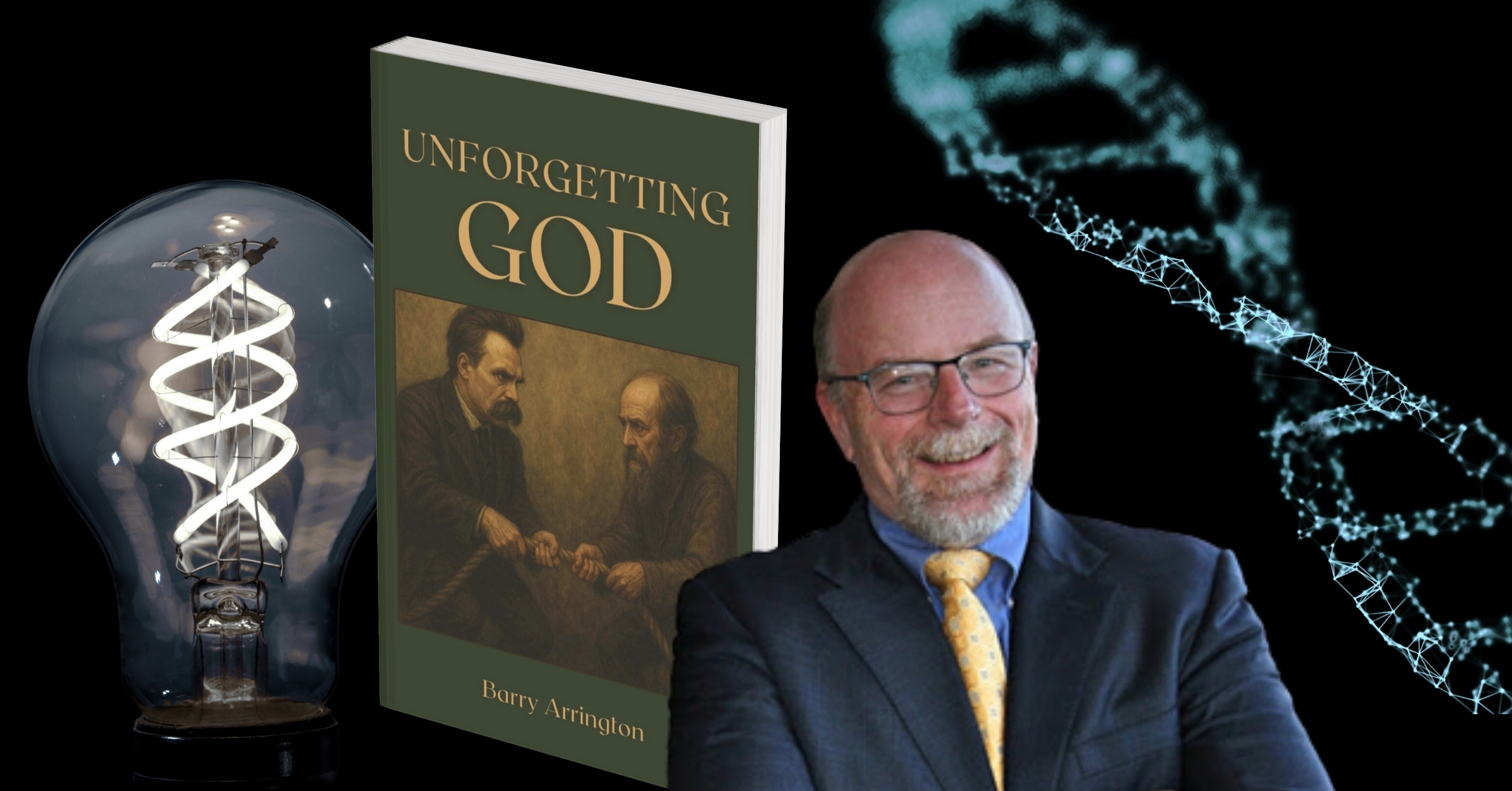Why Studying Evolution Will Likely Challenge Your Kids’ Faith
I saw the following post in a Christian Facebook group:
My daughter is starting her second semester of college tomorrow. She got ahold of her syllabus and found the following quote from the professor.
“Except to one whose reason is blinded by unquestioning adherence to fundamentalist doctrine of creation, the evidence of the fossil record, with that of anatomy, embryology, biochemistry and genetics, compels a single conclusion: evolution is a fact.”
Any suggestions on how she should approach this?
If this is his daughter’s first time hearing about evolution (or at least secular views of it), it’s going to be a tough semester. Any suggestions on how she should “approach this” are at least a couple of years late.
I hear or see questions like this all the time. Unfortunately, in my experience, many (if not most) Christian parents aren’t tackling the topic of evolution at home. I know some would love to but are overwhelmed by the subject and don’t know where to start. I wrote 8 of 40 chapters in my book on the topics of creation and evolution views to help parents who feel this way (I also posted a giant resource page last week).
However, far more parents are simply disinterested in the topic and, consequently, have a limited understanding of why evolution is such a big deal. They have a general idea that evolution is a challenge to Christian faith, but don’t necessarily know the particulars of why. At one end of the spectrum, there are parents who don’t care to know because they think it’s enough to teach their kids that “evolution is wrong and the Bible is right.” At the other end of the spectrum, there are parents who don’t care to know because they think evolution and Christianity can seamlessly fit together.
Both of these approaches trivialize the impact that studying evolution can have on a child’s faith.
Here’s why.
(Please note: There are many different uses of the term evolution. When I say evolution in this post, I’m talking about modern (“neo-Darwinian”) evolutionary theory in which all life descended from a single primitive species via natural selection acting on random DNA mutations. For more background on basics to understand about evolution, please see my post, 4 Key Points Christian Kids Need to Understand About Evolution.)
The Compelling Evidence for Evolution: Not Simple to Throw Out
When your kids first have the chance to hear the scientific case for evolution, it will likely be very convincing to them. Kids whose parents simply emphasize that evolution is wrong because it’s “not what the Bible says” (without further discussion) may well be left in a faith crisis when they eventually engage with the subject in depth. That’s exactly what happened to me. Here’s an excerpt from my chapter on the evidence for evolution, in which I share my own experience:
I didn’t learn about the evidence for evolution until I was in my 30s. When I did, it rocked my lifelong faith in a matter of hours.
When I was growing up, evolution wasn’t yet a subject taught in most public schools; I never encountered it academically. The only time I heard it mentioned was when my church youth group leader once laughed it off, saying, “Yeah, like we all really came from apes!” I remember thinking that was a pretty far-fetched idea. In college, I studied economics, so I came no closer to evolutionary theory as a young adult. It was very much off my radar until I had kids and decided I should learn about it for their sake.
I started studying evolution by reading an online series of introductory articles published by Biologos.org. After studying just eight lessons one day, I numbly shut down my computer, pulled a blanket over my head, and felt years of faith sheepishly slink into the shadows of my newfound knowledge. The evidence was shockingly vast—far more extensive than I had ever imagined. The details were fascinating and compelling. This wasn’t some half-baked idea about how fossils fit together, as I had previously imagined. This was… completely scientific. As scientific as any other science I had ever studied and assumed to be valid. It was hardly a leap to ask myself, Why shouldn’t I accept this science if I accept all other science I’ve been taught? I felt like I couldn’t breathe for hours as I lay pondering what life would look like without the God I had always believed in.
It’s important to know that this one night when evolution floored me came after I had attended church for 30-plus years, served as a youth group leader, taken numerous Sunday school classes, read the Bible regularly, and engaged in an active prayer life. None of those things prepared me to figure out what I should do with the evidence for evolution. If evolution was true, I had no idea how Christianity could be true at the same time. If evolution was not true, I had no idea how there could be so much evidence for it.
It was devastating.
How much more is learning about the evidence for evolution potentially devastating to young people with a relatively inexperienced faith? How much more will they “have no idea what to do with” compelling information that immediately seems to contradict the Bible? Recall from the introduction that we actually know that answer: At least 60 percent of young adults are turning away from Christianity today, and the evidence for evolution is one of the biggest reasons.
[End excerpt]
If your kids hear all this scientific evidence in school and say, “Meh. Unimpressive…” then their faith may not be challenged. But that’s an unlikely reaction for most. Clearly, kids need to engage with their parents on the complexity of these issues. Trivializing the subject is not the answer.
Five Ways Evolution Can Challenge Christian Faith
At the other end of the spectrum are parents who don’t care what their kids believe about evolution because they assume Christianity and evolution can fit seamlessly together. Indeed, the acceptance of evolution, in and of itself, does not necessitate atheism. God theoretically could have created the universe and planned for life to unfold via an evolutionary process (this idea is called theistic evolution). However, that doesn’t mean Christianity and evolution go together without some significant challenges. There are several big reasons why many people end up rejecting their faith after accepting evolution (again, not a necessary outcome, but a very possible one given these questions):
First, if a deity did create the world via evolution, it raises the question of whether He would still be active in it.
Most theistic evolutionists believe that God acted directly in creating the universe, but in doing so ensured that nature would require no additional guidance from that point on. If God is so “passive” in our natural history, why should we believe he’s so engaged in salvation history as told by the Bible (making covenants with people and nations, performing miracles, entering history as Jesus, and so on)?
Of course, there’s no logical reason God couldn’t act differently in these histories, but the contrast does give many people pause.
Second, if evolution is true, it’s hard to see how humans are different from animals, as the Bible claims.
The Bible is very clear that humans were made in the image of God. Although there is considerable scholarly debate over what precisely that means, at the very least it means humans have the cognitive and moral faculties necessary to have a relationship with God…and that animals don’t. The Bible presents humans as very different creatures who are uniquely accountable to our Creator, with eternal implications. According to modern evolutionary theory, however, humans are just another kind of animal. We all descend from the same species.
Theistic evolutionists usually believe that, at some point in time, God chose certain creatures to receive His image and become fully human (there’s no consensus on when or how that happened). Again, while logically possible, evolution certainly raises significant questions about the supposedly special status of mankind.
Third, if naturalistic (atheistic) evolution is true, it’s easier to account for the problem of suffering in the world.
One of the most difficult theological questions is why there is so much suffering in the world if an all-powerful and all-good God exists. While many Christians have offered answers throughout history, naturalistic evolution (at first) seems to explain suffering more readily than theism. If there’s no God, and the history of life is just a giant snowball of continuous DNA mutations rolling through time, genetic errors leading to suffering and disease are to be expected.
Fourth, if evolution is true, it raises serious questions about the reliability of the Bible.
There are quite a few things Christians disagree on when it comes to interpreting parts of the Bible, often boiling down to the meaning of a few specific verses. But there are more than a few verses that are in question if one believes evolution is true. Most obvious is the creation account in Genesis. If the Bible really is God’s Word, why wouldn’t God have informed the biblical writers that He created life via evolution…or, at the very least, remained silent on the topic and not given them an account that at face value contradicts reality? Those were the immediate questions that came to my own mind when I first learned about the evidence for evolution.
Additionally, many verses reference the creation account throughout the Bible, and, importantly, treat Adam as a historical figure (see, for example, Luke 3:38; Romans 5:12-21; 1 Corinthians 15:22, 45; 1 Timothy 2:13, 14; Jude 1:14). However, evolutionists conclude that we do not descend from an original set of two parents; they believe we descend from a group of at least 10,000. If Adam is not a historical person, it clearly challenges several more verses in the Bible than the creation account itself. (Theistic evolutionists have addressed this challenge and the next in a variety of ways beyond the scope of this post).
Fifth, if evolution is true, it raises serious questions about Christian theology.
There are also a lot of theological implications if there wasn’t a historical Adam or a historical “fall.” In the traditional Christian view, salvation is the result of God working to restore a fallen mankind to a right relationship with Him through Jesus. If there wasn’t a real Adam and there wasn’t a historical fall, it naturally raises the question of why there had to be a savior. Theistic evolutionists have offered answers to this, but there’s no question that it’s far more difficult to reconcile Christian theology without a historical Adam.
As I wrap this up, I want to return to the father’s question at the beginning of this post. When you realize how many scientific and scriptural considerations there are on this topic, you can see how difficult it will be for a young adult to go into a class where naturalistic (atheistic) evolution is taught as fact. Don’t let your child’s eventual college professor have the first (and possibly final) word on what your child believes. Take accountability and engage with your kids long before then.
If you’re not sure how to talk about these issues with your children, please check out my book. I explain young-Earth creationism, old-Earth creationism, naturalistic evolution, and intelligent design for parents with no background in these topics (without advocating any one position).
Recommended resources related to the topic:
Talking with Your Kids about God: 30 Conversations Every Christian Parent Must Have by Natasha Crain (Book)
Keeping Your Kids on God’s Side: 40 Conversations to Help Them Build a Lasting Faith by Natasha Crain (Book)
Courageous Parenting by Jack and Deb Graham (Book)
Proverbs: Making Your Paths Straight Complete 9-part Series by Frank Turek DVD and Download
Forensic Faith for Kids by J. Warner Wallace and Susie Wallace (Book)
God’s Crime Scene for Kids by J. Warner Wallace and Susie Wallace (Book)
Natasha Crain is a blogger, author, and national speaker who is passionate about equipping Christian parents to raise their kids with an understanding of how to make a case for and defend their faith in an increasingly secular world. She is the author of two apologetics books for parents: Talking with Your Kids about God (2017) and Keeping Your Kids on God’s Side (2016). Natasha has an MBA in marketing and statistics from UCLA and a certificate in Christian apologetics from Biola University. A former marketing executive and adjunct professor, she lives in Southern California with her husband and three children.
Original Blog Source: http://bit.ly/2VSTqzY












Leave a Reply
Want to join the discussion?Feel free to contribute!